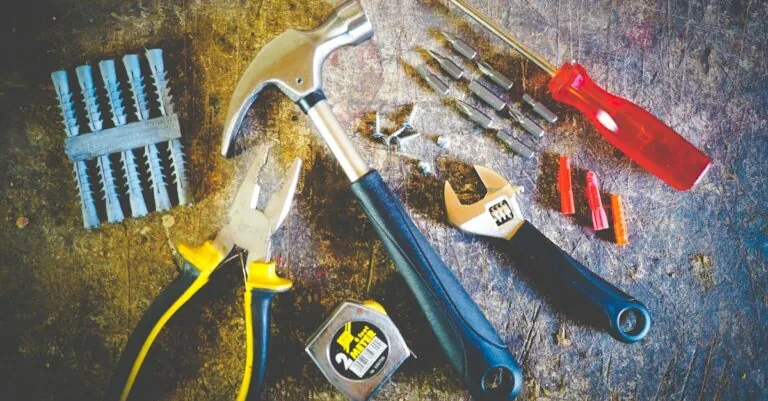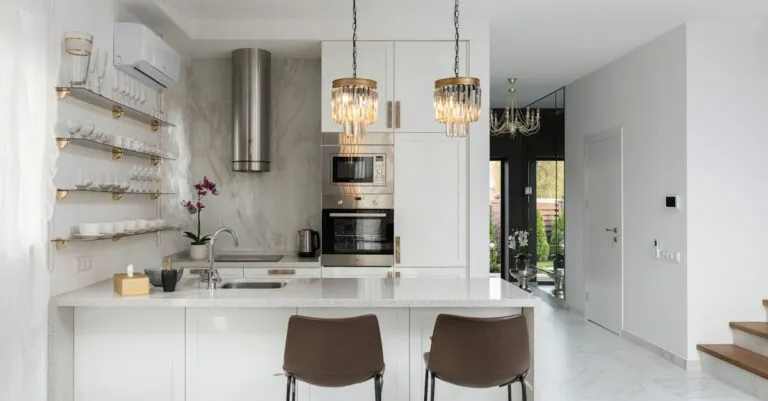When it comes to drywall installation, pricing can feel like a game of darts—blindfolded. Just how much should one charge for this essential home improvement task? Whether you’re a seasoned pro or a weekend warrior, nailing down the right price is crucial. After all, you don’t want to end up charging less than a cup of coffee for your hard work, nor do you want to scare clients away with prices that make their wallets weep.
Table of Contents
ToggleUnderstanding Drywall Installation Costs
Pricing drywall installation involves several key elements. It’s essential to assess these factors to establish an appropriate charge for services.
Factors Influencing Pricing
Experience levels affect cost. Professionals with extensive experience tend to charge higher rates due to their expertise. Job size directly influences pricing as larger projects often lead to volume discounts. Material quality also plays a significant role; higher-grade drywall and finishes lead to increased expenses. Location impacts labor costs. Urban areas typically feature higher prices due to demand. Additionally, job complexity, such as working around door frames or electrical outlets, can elevate labor costs.
Average Cost Breakdown
The average cost of drywall installation falls between $1.50 and $3.50 per square foot. Labor accounts for about 60% to 80% of this expense, with materials making up the rest. A standard sheet of drywall, measuring 4 feet by 8 feet, costs approximately $10 to $15. Installation costs generally vary based on specific project requirements. For instance, jobs requiring extensive taping and finishing may incur additional fees. Homeowners should budget for extra charges, including cleanup and disposal, typically amounting to $0.50 per square foot.
Assessing Your Project
Assessing a drywall installation project involves careful analysis of several key factors. Specifically, accurate measurements and the type of drywall influence pricing.
Measuring the Area
Measuring the area accurately stands critical for determining overall costs. To do this, measure the length and height of each wall, then multiply those dimensions. Calculate the total square footage by summing the individual wall areas. Subtract areas for doors and windows to avoid overestimating. This precise measurement of each wall informs pricing for labor and materials, ensuring charges reflect actual work.
Determining the Type of Drywall
Choosing the right type of drywall impacts both performance and costs. Standard drywall fits most residential applications and typically costs less, ranging from $1.00 to $2.50 per square foot. However, specialized types like moisture-resistant or fire-rated drywall increase expenses due to their enhanced properties. Considering specific project needs, like moisture levels in bathrooms or fire safety in garages, leads to informed choices about materials. Each type’s distinct cost and application contribute to the overall budget for the installation.
Pricing Models
Understanding pricing models for drywall installation helps both homeowners and contractors establish fair charges. Each model has distinct advantages, making it essential to choose one that fits the project scope.
Per Square Foot Pricing
Per square foot pricing remains a common approach in drywall installation. Homeowners can expect costs to range from $1.50 to $3.50 for materials and labor combined. This model simplifies estimating total expenses based on wall dimensions. For larger projects, this pricing structure often becomes more economical due to economies of scale. Contractors typically include additional charges for special requests like cleanup, generally around $0.50 per square foot. When deciding on the per square foot rate, factors such as drywall type and installation complexity play a crucial role.
Hourly Rate Considerations
Contractors may also opt for hourly rates when pricing drywall installation. Rates can vary significantly ranging from $30 to $60 depending on the contractor’s experience and location. This model often suits smaller projects where the total square footage doesn’t provide an accurate estimate. Hourly billing allows flexibility, especially when unexpected challenges arise during installation. Homeowners should inquire about estimated hours in advance to budget accurately. Understanding the hours of labor involved helps ensure that costs align with project expectations.
Additional Costs to Consider
Understanding additional costs involved in drywall installation helps homeowners budget effectively. These costs can significantly impact overall project expenses.
Labor and Material Costs
Labor and material costs constitute a significant portion of the total drywall installation price. Contractors usually charge between $1.50 and $3.50 per square foot, covering both materials and labor. Labor typically makes up 60% to 80% of total expenses. The choice of materials affects costs, with standard drywall being more affordable than specialty options like moisture-resistant or fire-rated drywall. Evaluating both labor costs and material choices enables homeowners to make informed decisions.
Permits and Inspections
Permits and inspections add another layer of expenses for drywall projects. Many jurisdictions require permits for structural modifications, including drywall installation. Permit costs can range from $50 to several hundred dollars, depending on location and project scope. Inspections may also occur to ensure compliance with building codes. Allocating budget for these potential costs fosters smooth project execution and avoids unexpected delays.
Tips for Setting Your Price
Setting the right price for drywall installation involves understanding market dynamics and your business needs.
Researching Local Rates
Examine local competitors to determine fair pricing. Recognizing the average installation cost within the area helps establish a competitive edge. Online platforms and local contractor directories often provide valuable insights. Source information on regional pricing trends to ensure accuracy. It’s essential to consider variations in labor costs based on location. Prices may differ in urban versus rural areas. Additionally, networking with local suppliers can reveal pricing fluctuations on materials. Gathering comprehensive data empowers homeowners and contractors to make informed pricing decisions.
Calculating Your Profit Margin
Identify all project costs to determine a reasonable profit margin. Calculate expenses for materials, labor, and overhead for a complete financial picture. A standard markup is around 20% to 30% on total costs, depending on competition and demand. Consider additional factors like project complexity and customer expectations when setting margins. Including a buffer for unexpected expenses ensures project viability. Transparency with clients regarding pricing fosters trust and long-term relationships. Ultimately, aligning cost calculations with market standards aids in creating sustainable profit while delivering quality service.
Determining the right charge for drywall installation is crucial for both contractors and homeowners. By considering factors like experience level job size and material quality they can arrive at a fair and competitive price. Understanding the average costs as well as potential extra charges ensures that all parties are prepared for the financial aspects of the project.
By being informed about pricing models and local market trends individuals can make educated decisions that align with their budget and project needs. Ultimately a well-calibrated pricing strategy fosters trust and satisfaction which is key to successful drywall installations.



